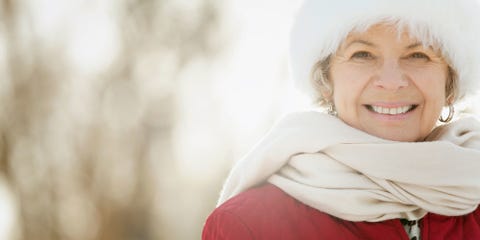Preparing Seniors for Winter
Like the Boy Scout motto, the key to keeping seniors safe and sound during the winter is “be prepared.” There are several ways that seniors and their loved ones can prepare for winter and the hazards that go along with the colder weather. Things to think about include preparing the home, having adequate supplies, and preparing for hazards brought on by weather events. The goal of preparing is to help more vulnerable senior adults thrive during the winter months.

1. Preparing the Home
During the warmer weather, the roof and other areas of the house should be checked to identify anything that might need to be repaired before the colder weather sets in. Windows and doors should be checked for air leaks. Making windows and doors airtight can help to keep the cold air out and the warm air in. When the house is airtight, the utility bills are less likely to spiral upward.
Another important preparation is to insulate water lines to prevent freezing. Having safe heating is very important. If there is a fireplace or gas fireplace, each should have a maintenance schedule to inspect things like the chimney and ventilation in order to keep seniors safe from hazards like carbon monoxide poisoning. Smoke and carbon monoxide detectors should also be inspected regularly.
2. Preparing for Winter Weather Events
Winter weather can create dangerous situations for seniors. Staying inside during snow and ice storms is preferable. However, if getting out is necessary during bad weather, be sure that there is a plan for snow and ice removal from walkways and driveways. This can help to avoid unnecessary slips and falls for seniors. If driving is necessary, have vehicles inspected and winterized. Make sure the car is equipped with emergency like blankets, a flashlight, clothes, food, and an ice scraper. Traveling with a cell phone and charger are also a good idea. It’s also important to have a plan for alternate transportation to avoid having to drive on icy or snowy roads.
Other preparations inside the home are important. Winter storms can bring power outages that can stretch for long periods of time. Plenty of blankets and warm clothes are a must in the event of a power outage. Food that can be eaten when the power is out should be available in the home. Be sure flashlights are available with batteries well stocked. A battery powered radio is also helpful to keep current on weather conditions. Most importantly, a plan to stay in touch with senior family members to check on their safety, and having an alternate place to stay should be part of every family conversation.
3. Other considerations
Maintaining independence is important for seniors. Like people of any age, seniors must take extra steps to be ready for the challenges winter brings both mentally and physically. Taking care of and preparing the physical environment is only part of what needs to be done. Having necessary vaccinations, like flu shots, is important for seniors heading into winter and cold and flu seasons. Getting advice from a primary care physician on additional supplements to help stay healthy during the winter is also something to be considered.
Depression can set in for seniors during the winter, especially when they are unable to get out and engage in activities. Using technology like Facetime and Skype can be a great way for seniors to interact with friends and family during the winter. Encouraging family members to make an extra effort to visit a senior relative can also help the feelings of loneliness and isolation.
Make sure you are talking with family members about how to stay healthy and safe during the winter months.
Visit our website at www.ElderLawOmaha.com today for more information on the services that we provide for both seniors and their families.
Comments
Post a Comment